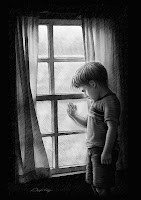How Children on the Autism Spectrum Can Avoid Being Bully Victims

When an Aspergers or high-functioning autistic (HFA) child does not feel safe in school, it is impossible for that student to learn or participate in the educational process in a productive manner. Children who are bullied spend their entire time trying to escape the harassment, the violence, the humiliation, and the shame of being a victim. As this injustice goes unchecked, the child on the autism spectrum becomes more and more convinced that no one will rescue him, because no one sees or understands his attempt to communicate that he is, in fact, a victim. Also, he becomes angrier and angrier until he begins to cope with his victimization by either (a) emulating the characteristics of a bully or (b) dropping out of school altogether. Children who are bullied: Are more likely to have health complaints. In one study, being bullied was associated with physical health status 3 years later. Are more likely to miss, skip, or drop out of school. Are more likely to retaliate t
